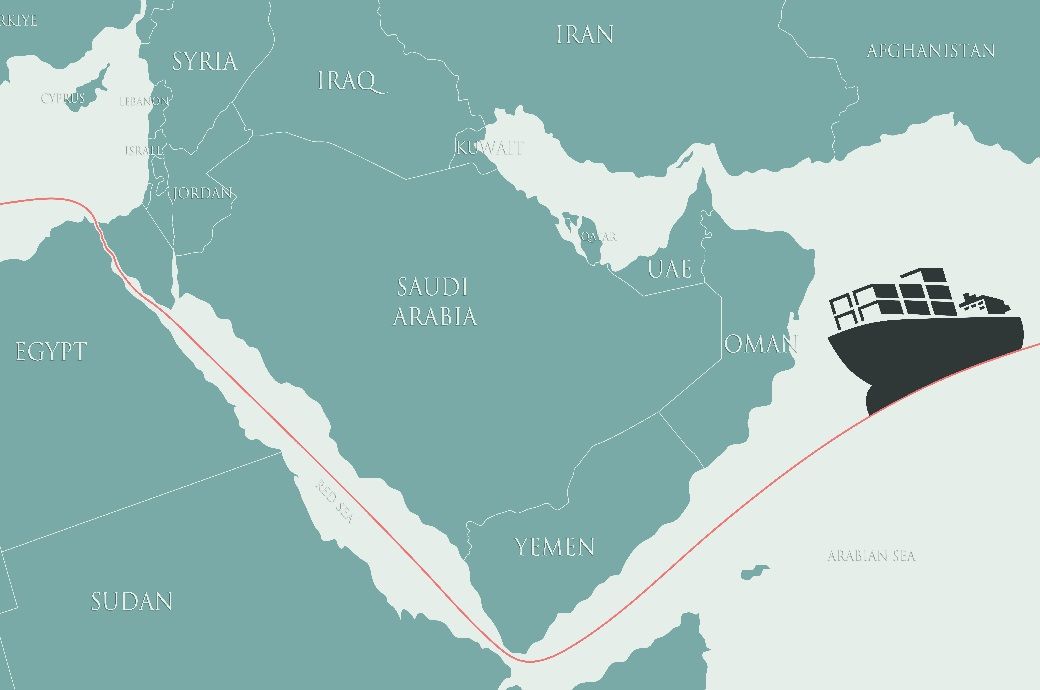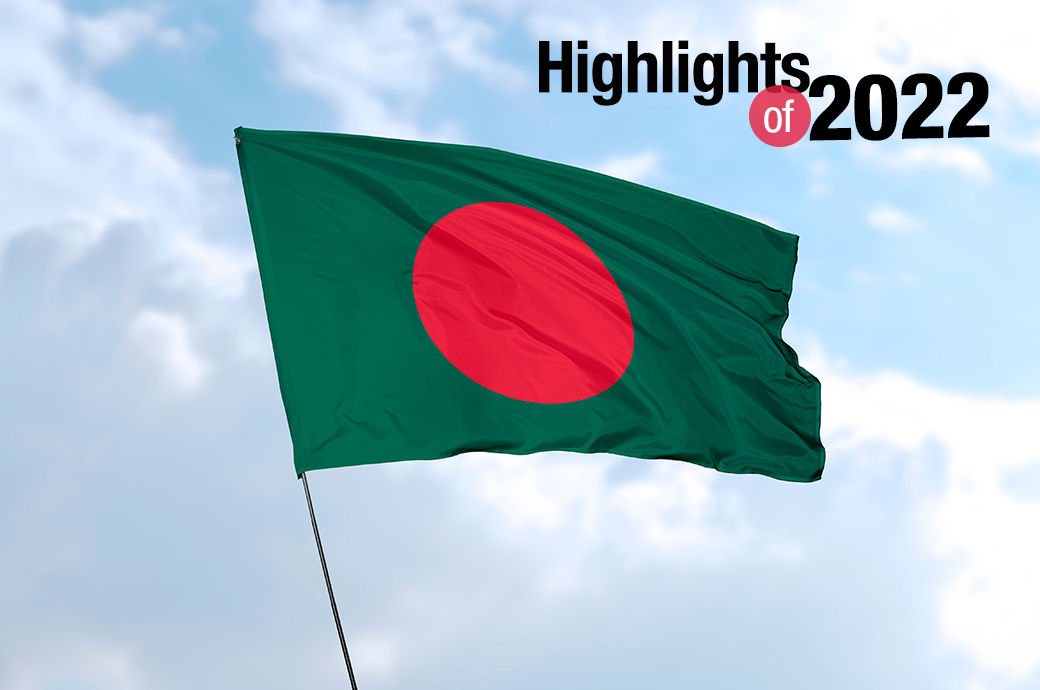Let us take a look at the major developments.
Bangladesh last year saw passage of the Trade Organisation Bill 2022, the Export Policy 2021-24 becoming effective, creation of a digital database of workers, introduction of the Employment Injury Scheme for garment workers, and formation of a joint committee by three garment industry bodies to expedite export and ensure better supply chain collaboration.
Policy
The Trade Organisation Bill, 2022, introduced in January and aimed at allowing foreign traders to form joint trade bodies in Bangladesh, was passed in Parliament in April. It replaced the Trade Organisations Ordinance, 1961. Some legal provisions were included for women entrepreneurs in trade organisations through licensing.
Bangladesh’s Export Policy 2021-24 became effective from March 23, with the highest priority attached to 14 sectors, including denim, man-made fibre, garment accessories, jute, home textiles and shoes, to boost foreign-currency earnings. It has policies to navigate potential challenges following the graduation from the least developed country (LDC) status in 2026, the fourth industrial revolution, research and development activities and coping with the COVID-induced blow to exporting sectors. The government aims annualised export earnings worth $80 billion during the 2021-2024 period.
The Bangladesh Bank in July extended the increased borrowing deadline from the $7-billion Export Development Fund (EDF) for textile millers and readymade garment (RMG) makers to December 31. The disbursement deadline was June 30 earlier. In another notice, it asked banks not to disburse loans from the EDF if clients fail to repay from their export earnings. That was the third such extension.
Last January, the central bank raised the loan limit to $30 million from $25 million to help exporters offset the business slowdown induced by the pandemic.
In June, the government decided to create a digital database of 3 lakh workers from around 10,000 entities from both the formal and informal sectors. The enlisted workers will receive labour identification numbers during the pilot period. The Labour Information Management System will digitally manage labourers’ information and help develop their skills for workplaces.
Germany committed to extend another grant of €191 million to Bangladesh at the latest round of bilateral development cooperation talks in December. The amount now stands at €275.1 million. Since 1972, the overall amount has reached more than €3.2 billion.
Textile & Garments
Bangladesh and Germany signed an agreement in January to support five projects worth €20.15 million, to be jointly implemented by the Deutsche Gesellschaft für Internationale Zusammenarbeit GmbH (GIZ) and partner ministries and institutions in Bangladesh. The grant will be used for interventions in the textile sector and for the promotion of e-mobility in Bangladesh. It will also ensure access to clean energy for Bangladeshis.
In the same month, the Bangladesh Garment Manufacturers and Exporters Association (BGMEA), the Bangladesh Knitwear Manufacturers and Exporters Association (BKMEA) and the Bangladesh Garments Accessories and Packaging Manufacturers and Exporters Association (BGAPMEA) formed a joint committee to expedite export of apparel items and ensure better supply chain collaboration and mutual benefits. The committee will deal with trade-related issues and settle disputes that arise among garments manufacturers and accessories-packaging suppliers.
In March, the government raised the maximum wastage rate for raw materials used to produce apparel following a strong disagreement with stakeholders on the earlier rates. Though apparel manufacturers hailed the commerce ministry decision, they said scope does exist to raise the rate further on some value-added products.
The US Agency for International Development launched a $5-million project in March to empower women working in RMG factories in the country. CARE Bangladesh is implementing the project, titled ‘Women Thrive in Bangladesh’, and expanding professional development opportunities for over 100,000 women.
The government agreed in June to introduce the Employment Injury Scheme for RMG workers beginning July. The agreement was reached during a meeting between the country’s labour and employment ministry and the International Labour Organisation (ILO) in Geneva.
A five-year initiative called Mapped in Bangladesh (MiB) is compiling and mapping export-oriented RMG factory data using the factory census approach. It had mapped 3,723 factories by mid-March. The project is being implemented by the Centre for Entrepreneurship Development of Brac University, funded by Laudes Foundation and the Netherlands government, and being coordinated by BRAC—an international development organisation based in Bangladesh.
The central bank in September cut the interest rate on loans under a programme started in 2019 that offers funds to RMG units to reinforce their safety system and improve environmental standards. The initial maximum annual interest rate of 7 per cent was reduced to 5 per cent.
Industrial
Textile mills in Bangladesh have been operating at only 30-40 per cent of their total production capacity since the gas shortage started in March 2022, the Bangladesh Textile Mills Association (BTMA) said in October. At least three-fifths of the 1,700 BTMA member factories were in a vulnerable position due to this.
Mills located around Dhaka—in Narayanganj, Araihazar, Madhabdi, Ashulia, Savar, Gazipur, Sreepur, Bhaluka regions, as well as those in Chittagong and Comilla were facing an average of 12-hour shutdowns.
The Bangladesh Economic Zones Authority (BEZA) in April signed a term sheet with India’s Adani Ports and SEZ Limited to establish an Indian economic cone at Mirsarai in Chittagong under government-to-government engagement. That was intended to start full-fledged activities for the development of the economic zone. Other processes, including the formation of a company to operate the zone will start in phases.
BEZA and the China Road and Bridge Corporation signed a memorandum of understanding in August to begin work on developing an economic and industrial zone in Chattogram’s Anowara sub-district. The zone is fully dedicated to Chinese entrepreneurs and investors.
ILO and the Federation of Bangladesh Chambers of Commerce and Industry (FBCCI) signed an agreement in August to enhance workplace safety and health in ten priority economic sectors. Several capacity-building and promotional activities will be carried out to strengthen workplace safety and health at institutional as well as enterprise levels. The activities will be supported by ILO’s RMG programme funded by Canada and the Netherlands.
Foreign Trade
Australia will continue its duty- and quota-free treatment for exports from Bangladesh even after the country graduates from the LDC status. This commitment was made at a meeting of the first joint working group on trade and investment held in March in Canberra.
Apparel exporters will now get cash incentives and subsidies from the government on exports with 20 per cent local value addition as the Bangladesh Bank in May lowered the threshold for value addition from 30 per cent. Local value addition is calculated by deducting the import cost of materials used in production from the net free on board (FOB) export price.
Bangladesh leather and leather goods exporters can now apply to the discount committee of the Bangladesh Bank for over 5 per cent discount against export of their items. A circular in this regard was issued in December by the central bank. The apparel sector was the sole beneficiary of the benefit till now.
The decision will help such exporters offset the loss of export proceeds they often incur by offering buyers discounts of more than 5 per cent prescribed in the guidelines for foreign exchange transactions. In some cases, buyers bargain for additional discounts after settling the price. If exporters can show reasonable evidence of offering additional discounts, the discount committee will consider it.
The Bangladesh Bank in September allowed exporters to retain the value-added portion of export proceeds—the part of the export receipts available after import bills of exporters for back-to-back letters of credit are settled—in US dollars for 30 days instead of 15 days. The decision helped exporters tackle the losses from the USD-taka exchange rate fluctuation.
The central bank also permitted exporters to transfer the value-added portion of export proceeds to other banks for the settlement of import bills or liabilities of the EDF. It had instructed exporters in May to sell their export proceeds to the same banks through which they ship goods as many of them sold the dollars to the lenders that offered the higher rate, creating indiscipline in the foreign exchange market. The bank asked exporters in August not to retain the value-added portion for more than 15 days to make the domestic forex market stable.
Sustainability
BGMEA said in December end that 183 garment factories have the US Green Building Council’s Leadership in Energy and Environmental Design (LEED) certification.
South Korea-based UN entity Green Climate Fund (GCF) signed a funding activity agreement (FAA) in July with the Infrastructure Development Company Limited (IDCOL) in Bangladesh for a previously-approved project promoting innovative private-sector investment in energy-saving technologies for the country’s textile industry. The FAA was signed on the sidelines of the GCF board meeting in Incheon, South Korea. IDCOL will receive $256.5 million concessional financing to promote energy efficiency in textile and garment sectors in Bangladesh.
Logistics
A direct freight service started in February from Chattogram port to Europe, reducing lead time and costs. The first cargo ship on the route left for the port of Ravenna in Italy in the first week of the month. The route is expected to reduce shipment cost by around 40 per cent. A ship will take 16 days to reach Italy through this route instead of the earlier 40.
Bangladesh’s private inland container depots raised charges for services involved in handling export-laden containers by 25 per cent in August citing the hike in fuel prices. The decision was arrived at by the Bangladesh Inland Container Depots Association and the Bangladesh Freight Forwarders Association.
Fibre2Fashion News Desk (WE)


:max_bytes(150000):strip_icc()/Health-GettyImages-2165148699-c2eb08c18e974bb49f795f84dbbb031d.jpg)


